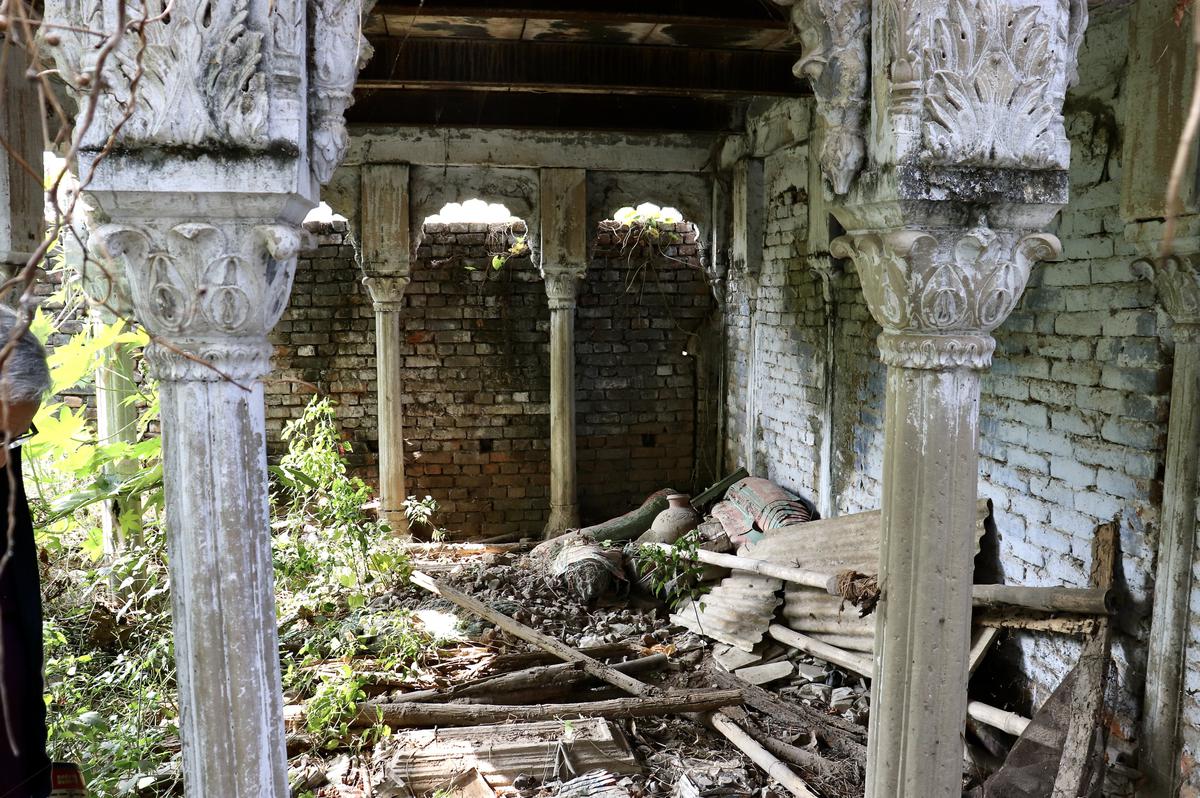Nauch artist of Patna. , photo credit: special arrangement
Johra Bai, the queen of Thumri, rests in a ruined tomb inside the precincts of Rauza Masjid in Maharaj Ganj, Patna. Born in Azimabad (Patna) in the mid-1860s or 1870s, Zohra accompanied her mother to the court of Maharaja Sir Lakshmeshwar Singh of Darbhanga in 1885, when she was still a young girl.
Sir Lakshmeshwar Singh, a patron of Hindustani music, turned Darbhanga into a center of music after the 1857 rebellion. Learning from the masters in the Maharaja’s court, Zohra excelled in singing and soon became the uncrowned queen of Thumri. Often called Ragini Devi for her majestic voice, she came to be known as Tawaif Zohra Bai Patnewali after she settled in Patna. Tawaif Johra Bai Patnewali.
Sir Laxmeshwar Singh, the Maharaja of Darbhanga. , Photo Credit: Special Arrangement
At a time when B Zamurad, Mohammadi Jaan, Allah Jilai Bai and Jaddan Bai (mother of Bollywood actor Nargis Dutt) were counted among rising stars, Zohra made her mark with her melodious singing style. She also wrote Urdu poetry and was a disciple of Sufi mystic and poet Shah Akbar Danapuri.
Zohra used to compose her own ghazals and perform them in gatherings at her haveli in Patna. Most of his poems have fallen through the cracks, but a few couplets find mention in Haqiqat Bhi Kahani Bhi, the autobiography of Syed Badruddin Ahmed, a poet and writer associated with the Bihar Muslim League. Published by the Bihar Urdu Academy in 1988, his memoir serves as an important guide to Patna in the late 19th and early 20th centuries. Two couplets of Zohra go on:
We pee, you who go, bow down to the tavern, some thing from paying the glass somewhere (Drunk, as we left the alehouse, / Decanter bent over a glass of wine.)
We have seen the eyes of a mourner are similar to the gleaming payment (We have seen mischievous eyes the color of wine. / They are like a glass of wine.)
A devotee of Imam Hussain, she wrote several elegy (nauhe) for him, of which only one couplet has survived:
What should Zohra do while living in India? Azam Bill Jajam belongs to Karbala (Why should Zohra stay in India, / when the punishment is to go to Karbala.)
Legend has it that while trying to master a rare raga that was superior to many of the greats of Hindustani classical, the zohra was broken. His lungs broke down and doctors advised him not to sing anymore. But it was impossible to keep Zohra away from music. Within a few weeks she was practicing the same raga again, this time causing her death.

The grave of Zohra Bai is lying in a neglected state. , Photo Credit: Special Arrangement
Recently, Johra’s tomb, commissioned by the Maharaja of Darbhanga, was discovered by Patna-based historian Arun Singh. The tomb, used as a dumping ground all these years, lies in ruins. History seems to have forgotten the Queen of Thumri and her final resting place.
Many female Hindustani classical singers have faced the same fate as Zohra, and also because they identify as prostitutes. Yet the world of Hindustani music would be incomplete without these women who shaped it.
The writer is a theater artist and A student of Preventive Conservation at IGNCA.